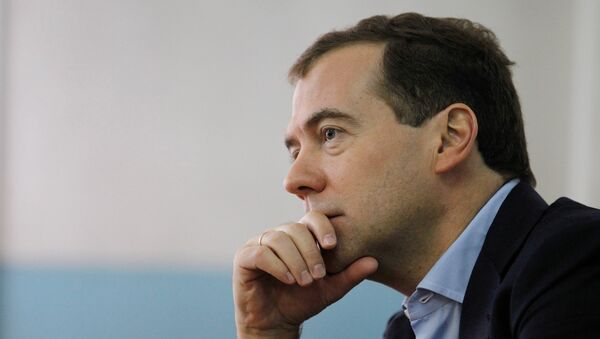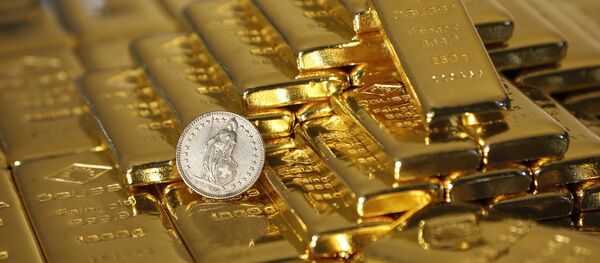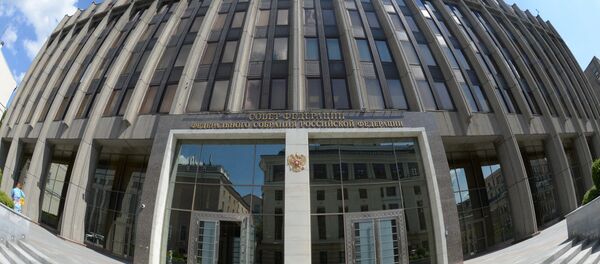“Follow this and report on how to define the parameters [of economic support] right after our holidays as we agreed,” Medvedev told First Deputy Prime Minister Igor Shuvalov during a meeting with deputy prime ministers.
Russia will officially be on New Year's holiday until January 12.
“We need to act according to our plans that we already have, especially in the conditions of economic instability, and not sway from them, and make sure the plans are executed in legislation. This is the most important function of the government,” Medvedev announced before all of his deputies.
On December 15, known as "black Monday," the ruble fell over 20 percent, the steepest currency collapse since the country's 1998 financial crisis. In an attempt to shore up the ruble Russia's Central Bank increased its key interest rate from 10.5 percent to 17 percent. Nevertheless, on December 16, the ruble saw another major slump, but regained some value against major foreign currencies by evening. Currently, the ruble is continuing to regain value lost over the previous months.
Russia is currently facing an economic slowdown. The economy has been largely damaged by a sharp decline in oil prices, as the country's budget is largely dependent on energy exports. Moreover, the economy is feeling the impact of sanctions imposed on Russia by some Western countries over Russia's alleged role in the Ukrainian crisis, although Moscow has repeatedly denied these claims.




